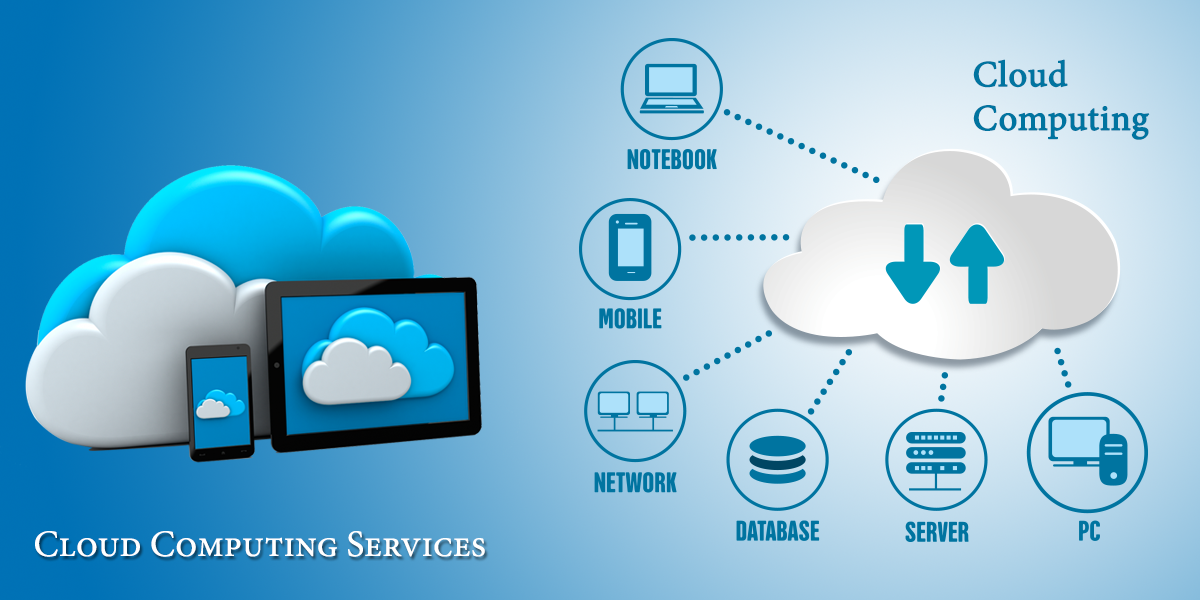Cloud based web hosting services – Cloud-based web hosting services have revolutionized the way businesses and individuals manage their online presence. By leveraging the power of cloud computing, cloud hosting offers unparalleled scalability, flexibility, and reliability compared to traditional hosting methods. This approach allows users to access and manage their websites and applications from anywhere with an internet connection, eliminating the need for physical servers and complex infrastructure management.
The cloud hosting landscape is diverse, offering a range of services to suit different needs and budgets. From shared hosting, where multiple websites share the same server resources, to dedicated cloud servers, which provide exclusive access to a powerful server environment, there’s a cloud hosting solution for every website and application. This flexibility allows users to tailor their hosting infrastructure to their specific requirements, ensuring optimal performance and scalability.
Understanding Cloud Hosting Services: Cloud Based Web Hosting Services
Cloud hosting is a popular choice for websites of all sizes, offering flexibility, scalability, and cost-effectiveness compared to traditional hosting methods. This section delves into different types of cloud hosting services, their features, advantages, and suitability for various website needs.
Types of Cloud Hosting Services
Cloud hosting services are broadly categorized into four main types, each with distinct characteristics and advantages:
- Shared Hosting: In shared hosting, multiple websites share the same server resources, including CPU, RAM, and storage. This makes it the most affordable option, suitable for low-traffic websites with minimal resource demands.
- VPS Hosting: VPS hosting provides a virtualized server environment, offering dedicated resources and more control over the server environment compared to shared hosting. This option is suitable for websites with moderate traffic and resource requirements.
- Dedicated Hosting: Dedicated hosting provides an entire physical server exclusively for one website, offering maximum control, performance, and security. This is the most expensive option, ideal for high-traffic websites with demanding resource needs.
- Cloud Servers: Cloud servers, also known as Infrastructure as a Service (IaaS), provide a virtualized server environment on a cloud platform. Users have complete control over the server, including operating system, software, and configurations. This option is highly scalable and flexible, suitable for websites with varying resource needs and demanding applications.
Features and Advantages of Cloud Hosting Services
- Scalability: Cloud hosting services allow websites to scale resources on demand, accommodating traffic fluctuations and growth. This ensures optimal performance and prevents downtime.
- Flexibility: Cloud hosting provides flexibility in resource allocation, allowing users to adjust server configurations according to their needs. This minimizes wasted resources and optimizes cost-effectiveness.
- Reliability: Cloud hosting utilizes redundant servers and data centers, ensuring high availability and minimizing downtime due to hardware failures or other issues.
- Cost-effectiveness: Cloud hosting services offer pay-as-you-go pricing models, allowing users to pay only for the resources they consume. This eliminates the need for upfront investments in hardware and infrastructure.
- Security: Cloud hosting providers offer robust security features, including firewalls, intrusion detection systems, and regular security updates, protecting websites from cyber threats.
Comparison of Cloud Hosting Services
The following table compares different cloud hosting services based on their features, advantages, and suitability for various website needs:
| Feature | Shared Hosting | VPS Hosting | Dedicated Hosting | Cloud Servers |
|---|---|---|---|---|
| Price | Most Affordable | Moderate | Most Expensive | Variable, depending on resource usage |
| Performance | Shared resources, potential performance limitations | Dedicated resources, improved performance | Highest performance, dedicated server resources | Highly scalable, customizable performance based on resource allocation |
| Control | Limited control over server environment | More control over server environment | Full control over server environment | Complete control over server environment, including operating system and software |
| Scalability | Limited scalability | Moderate scalability | Limited scalability | Highly scalable, resources can be adjusted on demand |
| Security | Shared security measures | Improved security features | Enhanced security features | Robust security features, customizable security configurations |
| Suitability | Low-traffic websites, budget-conscious users | Moderate traffic websites, businesses with specific resource needs | High-traffic websites, demanding applications, high security requirements | Websites with varying resource needs, demanding applications, requiring flexibility and scalability |
Key Features of Cloud-Based Web Hosting
Cloud-based web hosting offers several key features that make it an attractive option for businesses of all sizes. These features are designed to provide scalability, flexibility, reliability, and security, ultimately enhancing the performance and efficiency of your website.
Scalability and Flexibility
Cloud hosting allows you to easily scale your resources up or down based on your website’s needs. This means you can add more processing power, storage space, or bandwidth as your traffic grows, without having to invest in expensive hardware upgrades. Similarly, you can reduce your resources when traffic is low, saving you money on unused capacity.
Load Balancing and Redundancy
Cloud hosting utilizes load balancing to distribute traffic across multiple servers, ensuring that no single server becomes overloaded. This helps to prevent website slowdowns and outages. Redundancy is another crucial aspect of cloud hosting. It ensures that if one server fails, another server can take over, minimizing downtime.
Security Features
Cloud hosting providers offer a wide range of security features to protect your website and data. These features may include firewalls, intrusion detection systems, malware scanning, and regular security updates. Additionally, cloud hosting providers often have dedicated security teams that monitor for threats and respond to incidents quickly.
Data Backups and Disaster Recovery
Cloud hosting providers typically offer automatic data backups, ensuring that your website data is protected in case of hardware failure or data corruption. This data can be restored quickly and easily, minimizing downtime. Disaster recovery plans are also available, which Artikel how your website will be restored and operational in the event of a major disaster, such as a natural disaster or a cyberattack.
Benefits of Cloud-Based Web Hosting
Cloud-based web hosting offers a range of advantages over traditional hosting methods, making it a popular choice for businesses and individuals alike. These benefits encompass cost-effectiveness, enhanced performance, improved security, and simplified management, ultimately contributing to a more efficient and reliable web hosting experience.
Cost-Effectiveness
Cloud hosting is often more cost-effective than traditional hosting, especially for businesses with fluctuating website traffic. With cloud hosting, you only pay for the resources you use, eliminating the need for upfront investments in hardware and infrastructure. This pay-as-you-go model allows you to scale your resources up or down as needed, ensuring that you are not paying for resources that you are not using.
Performance and Reliability, Cloud based web hosting services
Cloud hosting provides a significant performance boost compared to traditional hosting. The distributed nature of cloud infrastructure allows for faster loading times, improved scalability, and greater uptime. By leveraging multiple servers and data centers, cloud hosting ensures that your website remains accessible even if one server experiences an outage. This redundancy significantly improves website reliability and user experience.
Security and Disaster Recovery
Cloud hosting offers enhanced security and disaster recovery capabilities. Cloud providers invest heavily in security measures, such as firewalls, intrusion detection systems, and data encryption, to protect your website and data from cyber threats. Additionally, cloud hosting provides automated backups and data replication, allowing you to quickly recover from data loss or system failures. This ensures business continuity and minimizes downtime in the event of unforeseen circumstances.
Simplified Management and Maintenance
Cloud hosting simplifies website management and maintenance. Cloud providers handle the technical aspects of server management, including updates, security patches, and infrastructure maintenance. This frees you to focus on your core business operations without worrying about the complexities of managing your website’s infrastructure.
Choosing the Right Cloud Hosting Provider
Choosing the right cloud hosting provider is crucial for the success of your website or web application. It involves carefully considering your specific needs and requirements to make an informed decision.
Factors to Consider When Choosing a Cloud Hosting Provider
When selecting a cloud hosting provider, it’s essential to evaluate several factors to ensure a suitable fit for your needs.
- Scalability and Flexibility: Cloud hosting offers scalability, allowing you to easily adjust your resources as your website traffic or storage needs change. Consider the provider’s ability to scale both upwards and downwards to accommodate fluctuating demands.
- Performance and Reliability: Performance and reliability are critical for a positive user experience. Look for providers with a proven track record of uptime and fast loading speeds. Factors like server location, network infrastructure, and load balancing play a significant role.
- Security and Data Protection: Security is paramount in the digital world. Choose a provider that implements robust security measures, such as firewalls, intrusion detection systems, and regular security audits. Data encryption and backup solutions are also essential.
- Pricing and Cost Optimization: Cloud hosting offers flexible pricing models, often based on usage. Consider factors like pricing per resource, billing cycles, and potential cost optimization strategies to find a provider that aligns with your budget.
- Support and Documentation: Reliable support and comprehensive documentation are crucial for troubleshooting issues and maximizing the benefits of your cloud hosting solution. Look for providers with responsive support channels, such as live chat, phone, and email, along with detailed documentation and tutorials.
- Features and Services: Cloud hosting providers offer a range of features and services. Consider your specific needs, such as database management, content delivery networks (CDNs), and website monitoring tools, to select a provider that meets your requirements.
Service Level Agreements (SLAs) and Support Options
Service level agreements (SLAs) define the level of service you can expect from a cloud hosting provider. They typically Artikel uptime guarantees, response times, and other performance metrics. Carefully review the SLA to understand the provider’s commitments and ensure they align with your business needs.
- Uptime Guarantee: A high uptime guarantee is essential for website availability. Look for providers offering at least 99.9% uptime, which translates to less than 43 minutes of downtime per year.
- Response Time: A provider’s response time to support requests is crucial for resolving issues quickly. Look for providers with clear response time guarantees, ideally within a few hours or minutes.
- Support Channels: Choose a provider with multiple support channels, such as live chat, phone, and email, to ensure you can contact them conveniently.
Pricing Models and Cost Optimization
Cloud hosting offers various pricing models, each with its advantages and disadvantages.
- Pay-as-you-go: This model allows you to pay only for the resources you use, providing flexibility and cost-effectiveness for fluctuating workloads.
- Reserved Instances: Reserved instances offer discounts for long-term commitments to specific resources, providing cost savings for predictable workloads.
- Spot Instances: Spot instances offer significant discounts on unused resources, ideal for workloads that can tolerate interruptions.
Cost optimization is crucial in cloud hosting. Implement strategies such as right-sizing resources, utilizing serverless computing, and optimizing database queries to minimize expenses.
Reliability and Security Evaluation
Evaluating the reliability and security of potential cloud hosting providers is crucial for ensuring the safety and performance of your website.
- Reputation and Reviews: Research the provider’s reputation by reading online reviews and testimonials from other users. Look for providers with positive feedback and a history of reliability.
- Security Certifications: Security certifications, such as ISO 27001 and SOC 2, demonstrate a provider’s commitment to security best practices.
- Data Center Locations: Consider the location of the provider’s data centers to minimize latency and ensure compliance with relevant data privacy regulations.
- Security Features: Inquire about the provider’s security features, such as firewalls, intrusion detection systems, and data encryption.
Setting Up a Cloud-Based Website
Setting up a website on a cloud hosting platform is a straightforward process, offering flexibility and scalability. It involves choosing a domain name, selecting a website builder or using a content management system (CMS), and configuring the website on the cloud server.
Domain Registration
A domain name is your website’s address on the internet. It is crucial for visitors to find and access your website. You can register a domain name through various domain registrars, such as GoDaddy, Namecheap, or Google Domains. When choosing a domain name, consider factors like availability, relevance to your website’s content, and ease of memorization.
Website Building Options
There are several options for building a website:
- Website Builders: Platforms like Wix, Squarespace, and Weebly provide user-friendly drag-and-drop interfaces to create websites without coding knowledge. These platforms offer pre-designed templates and features to simplify the website building process.
- Content Management Systems (CMS): CMS platforms like WordPress, Drupal, and Joomla provide a more flexible and customizable approach to website building. They offer a wide range of plugins and themes to enhance website functionality and appearance.
- Custom Coding: For advanced users, custom coding using languages like HTML, CSS, and JavaScript allows for complete control over website design and functionality.
Website Configuration
Once you have chosen a website building option and registered a domain name, you need to configure your website on the cloud server. This typically involves:
- Connecting your domain name to the cloud server: This process, known as DNS (Domain Name System) configuration, ensures that visitors typing your domain name in their web browser are directed to your website hosted on the cloud server.
- Uploading your website files: The website files, including HTML, CSS, images, and other assets, need to be uploaded to the cloud server. Most cloud hosting providers offer tools for file transfer, such as FTP (File Transfer Protocol) or SFTP (Secure File Transfer Protocol).
- Setting up databases: If your website requires a database, such as for a blog or e-commerce platform, you need to create and configure a database on the cloud server. Cloud hosting providers typically offer database management tools for this purpose.
Popular Website Management Tools and Frameworks
Several tools and frameworks are available for managing websites in cloud environments:
- Cloud Hosting Control Panels: Cloud hosting providers often provide control panels, such as cPanel or Plesk, that offer a user-friendly interface for managing website files, databases, and other settings.
- Version Control Systems: Git, a popular version control system, is used to track changes to website code and allows for collaboration among developers. Cloud hosting providers often integrate Git repositories for seamless version control.
- Continuous Integration and Continuous Deployment (CI/CD): CI/CD pipelines automate the process of building, testing, and deploying website updates, ensuring faster and more efficient deployments.
Cloud Hosting for Specific Use Cases
Cloud hosting offers a versatile platform that caters to various website and application needs. It’s particularly beneficial for businesses and individuals seeking scalable, reliable, and cost-effective solutions.
Cloud Hosting for E-Commerce Websites
E-commerce websites often experience fluctuating traffic, especially during promotional periods or seasonal sales. Cloud hosting provides the flexibility to scale resources up or down as needed, ensuring smooth performance and preventing site crashes during peak demand.
- Scalability: Cloud hosting allows you to easily adjust server capacity based on real-time traffic, preventing performance issues during peak shopping seasons or flash sales.
- High Availability: Cloud infrastructure offers redundancy and failover mechanisms, ensuring your e-commerce store remains accessible even if one server experiences an outage.
- Security: Cloud providers implement robust security measures, protecting your website and customer data from cyber threats, a critical concern for online retailers.
- Cost-Effectiveness: Cloud hosting eliminates the need for upfront investments in hardware and software, allowing you to pay only for the resources you use, making it an economical choice for growing e-commerce businesses.
Cloud Hosting for High-Traffic Websites and Applications
Websites and applications that experience heavy traffic, such as news portals, social media platforms, or online gaming services, benefit significantly from cloud hosting’s ability to handle large volumes of data and users simultaneously.
- Scalability: Cloud hosting allows you to seamlessly add more resources as traffic increases, ensuring a smooth user experience even during peak hours.
- Performance Optimization: Cloud providers offer advanced features like load balancing and content delivery networks (CDNs), which distribute traffic across multiple servers, reducing latency and improving page load times.
- Disaster Recovery: Cloud hosting provides built-in disaster recovery capabilities, allowing your website or application to quickly recover from unexpected events like hardware failures or natural disasters.
- Cost Savings: Cloud hosting allows you to pay only for the resources you use, making it a cost-effective solution for high-traffic websites and applications, especially compared to traditional dedicated servers.
Cloud Hosting for Content Management Systems (CMS) and Blogs
Cloud hosting is an ideal solution for websites built on content management systems (CMS) like WordPress or Drupal, as well as for blogs. It offers the flexibility and scalability needed to manage large amounts of content, handle traffic fluctuations, and ensure website security.
- Ease of Management: Cloud platforms offer user-friendly interfaces for managing your website, making it easy to update content, install plugins, and perform other administrative tasks.
- Automatic Updates: Cloud hosting providers typically handle automatic updates for the underlying software and security patches, reducing the burden on you and ensuring your website remains secure.
- Scalability: Cloud hosting allows you to easily scale your resources as your website grows, ensuring smooth performance even with increasing traffic and content.
- Backup and Recovery: Cloud hosting often includes built-in backup and recovery features, protecting your website’s content and data from accidental deletion or hardware failures.
Examples of Industries Where Cloud Hosting is Particularly Beneficial
Cloud hosting offers significant advantages across various industries, including:
- E-commerce: As discussed earlier, cloud hosting provides scalability, security, and cost-effectiveness, making it an ideal solution for online retailers.
- Media and Entertainment: Cloud hosting is essential for streaming services, video platforms, and online gaming companies, enabling them to handle high traffic and deliver seamless content delivery.
- Healthcare: Cloud hosting provides secure and reliable platforms for storing and managing sensitive patient data, meeting HIPAA compliance requirements.
- Financial Services: Cloud hosting enables financial institutions to offer secure online banking services, manage large databases, and comply with regulatory requirements.
- Education: Cloud hosting provides scalable platforms for online learning management systems, virtual classrooms, and student data management.
The Future of Cloud-Based Web Hosting

The world of web hosting is constantly evolving, driven by advancements in technology and the changing needs of businesses and individuals. Cloud-based hosting has already revolutionized the way websites are built and managed, and the future holds even more exciting possibilities.
Emerging Trends in Cloud Hosting
The future of cloud hosting is shaped by several emerging trends, each with the potential to significantly impact how we think about and utilize web hosting services.
- Serverless Computing: This technology allows developers to run code without managing servers, shifting the responsibility for infrastructure management to the cloud provider. Serverless computing offers numerous benefits, including scalability, cost-efficiency, and faster development cycles. It’s particularly well-suited for applications that experience fluctuating workloads, making it ideal for tasks like data processing, API endpoints, and event-driven functions. For example, a company running a popular online game could leverage serverless computing to automatically scale their infrastructure during peak hours, ensuring a smooth gaming experience for all players.
- Edge Computing: Edge computing brings computation and data storage closer to users, reducing latency and improving performance. This approach is especially valuable for applications that require real-time data processing, such as streaming services, gaming, and IoT devices. Imagine a live streaming platform utilizing edge computing to deliver content to viewers worldwide with minimal buffering, enhancing the user experience and expanding its global reach.
Impact of AI and ML on Cloud Hosting
Artificial intelligence (AI) and machine learning (ML) are playing a crucial role in enhancing cloud hosting services. These technologies can optimize resource allocation, predict and prevent outages, and personalize user experiences.
- Automated Resource Management: AI-powered algorithms can analyze real-time data on resource usage, identifying patterns and predicting future needs. This enables cloud providers to automatically adjust server capacity, ensuring optimal performance while minimizing costs. Imagine a cloud hosting platform using AI to dynamically allocate resources to websites based on traffic patterns, automatically scaling up or down to meet demand.
- Enhanced Security: AI and ML algorithms can be trained to detect and respond to security threats in real-time. This helps prevent malicious attacks and data breaches, enhancing the overall security of cloud hosting environments. For instance, a cloud provider could use AI to monitor network traffic for suspicious activity, automatically blocking potential threats and protecting customer data.
Challenges and Opportunities for Cloud Hosting
While the future of cloud hosting looks bright, several challenges need to be addressed.
- Data Privacy and Security: As more data is stored in the cloud, ensuring its privacy and security becomes paramount. Cloud providers must implement robust security measures and comply with data privacy regulations to maintain user trust. For example, cloud hosting providers need to adopt strong encryption protocols and regularly update their security systems to protect sensitive data from unauthorized access.
- Sustainability: Cloud computing consumes significant energy, raising concerns about its environmental impact. Cloud providers are actively working to reduce their carbon footprint by adopting renewable energy sources and optimizing resource usage. This includes investing in energy-efficient data centers and implementing practices like server virtualization and dynamic resource allocation.
Last Recap
As the digital landscape continues to evolve, cloud-based web hosting services are poised to play an even more critical role in powering online experiences. The benefits of scalability, flexibility, security, and cost-effectiveness make cloud hosting an attractive option for businesses and individuals alike. By embracing the advantages of cloud computing, users can focus on growing their online presence, knowing that their websites and applications are hosted on a reliable and robust infrastructure. The future of web hosting lies in the cloud, offering a world of possibilities for innovation and growth.




